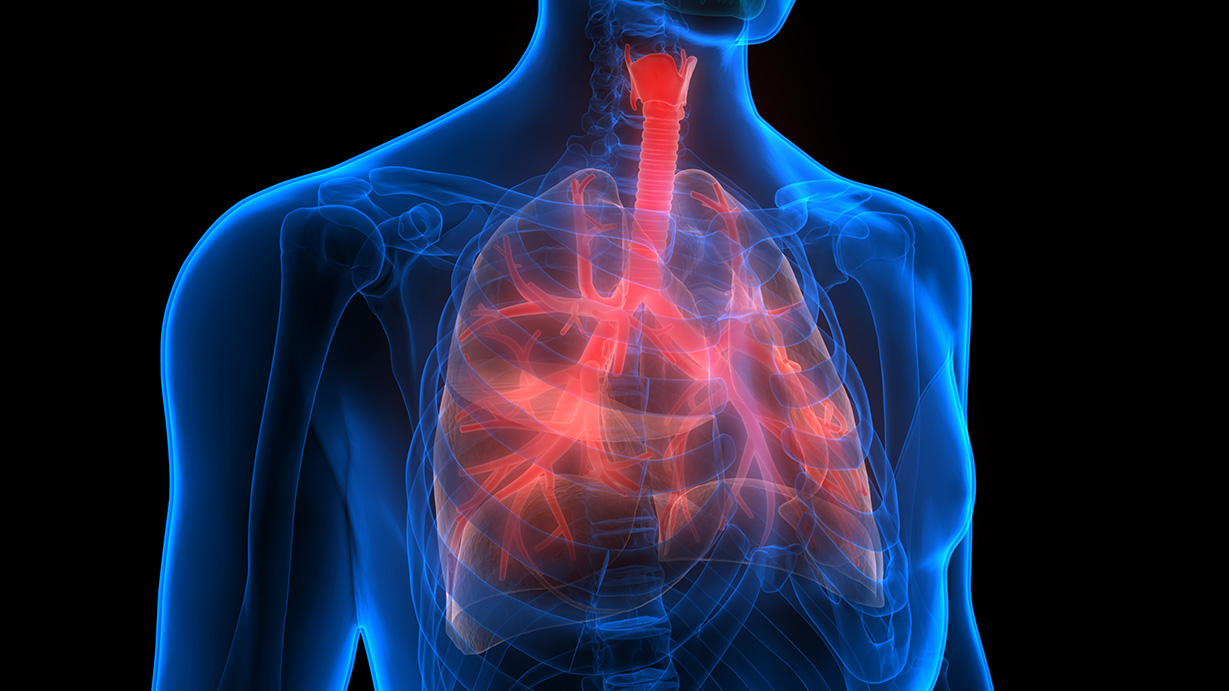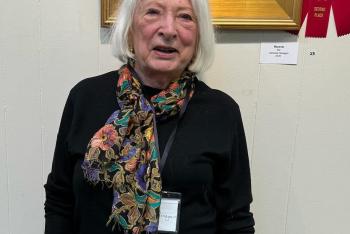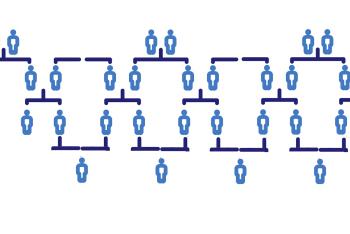Intuitive’s Ion bronchoscopy system is a robotic platform that could allow for earlier lung cancer...
Read More

A lung cancer diagnosis, no matter what stage, can be frightening. With a variety of different treatment options available, it can be confusing to decipher what the best route may be. While it may sound like an overwhelming challenge, Inspira physicians are able—and ready—to partner with patients in developing a safe and effective treatment plan.
To help better understand what treatment options are available to patients, Charles Shieh, M.D., thoracic surgeon at Inspira’s Cancer Centers and Medical Director of Lung Cancer at Inspira Health, offers his expertise on different treatment options.
Q: What type of different treatments are there for lung cancer?
Dr. Shieh: Generally speaking, treatments can be broken down into two major categories: Surgical and Non-Surgical. Non-Surgical options include traditional chemotherapy, radiation therapy, molecularly targeted therapy, as well as new treatments such as immunotherapy. We often use a combination of different treatment methods in order to attack the cancer from multiple angles.
Q: Is one treatment method more common than the others?
Dr. Shieh: We’re seeing a shift toward minimally or non-invasive methods of treatment. If we don’t have to perform surgery, we won’t. And if we do, we’ll explore all of our options, including doing the surgery with very small incisions thoracoscopically or robotically.
Q: What are some of the common non-invasive treatment methods?
Dr. Shieh: Immunotherapy has emerged as a key tool to treat lung cancer in the past few years, and is becoming a more common method of non-invasive treatment. For many types of lung cancers, the first line of treatment is no longer chemotherapy, but immunotherapy instead.
Studies have proven time and again that for certain lung cancer types, immunotherapy is more effective than traditional chemo, has fewer side effects and is better tolerated by patients. It requires a collaboration between a thoracic surgeon and a medical oncologist, with the treatment depending on patient preference, stage of cancer and other risk factors.
Q: Minimally-invasive surgical techniques are a hot-button topic across the health care spectrum—what do these techniques look like for lung cancer?
Dr. Shieh: For lung cancer patients, minimally-invasive techniques involve incisions that are less than an inch long in the chest. Benefits of using minimally-invasive techniques include shorter recovery times, shorter hospital stays and better pain control. Generally, we can cut recovery time in half when compared to traditional surgery.
In fact, the vast majority of patients don’t need to go to a formal rehab facility after surgery. For the most part, patients go home with simple breathing exercises for their rehab.
Inspira offers access to all surgical options for treatment, meaning there’s no need to travel to a big center in Philadelphia or New York to get these treatments. With Inspira, you can get your treatments closer to home, at your convenience.
Learn more about lung cancer treatment at Inspira or call to make an appointment 1-800-INSPIRA.

Intuitive’s Ion bronchoscopy system is a robotic platform that could allow for earlier lung cancer...
Read More
For 81-year-old artist Bonnie Flanagan, an overall assessment of her health, which included a self...
Read More
Uncover the hidden connections between your family's past and your future well-being as we delve...
Read More
The material set forth in this site in no way seeks to diagnose or treat illness or to serve as a substitute for professional medical care. Please speak with your health care provider if you have a health concern or if you are considering adopting any exercise program or dietary guidelines. For permission to reprint any portion of this website or to be removed from a notification list, please contact us at (856) 537-6772